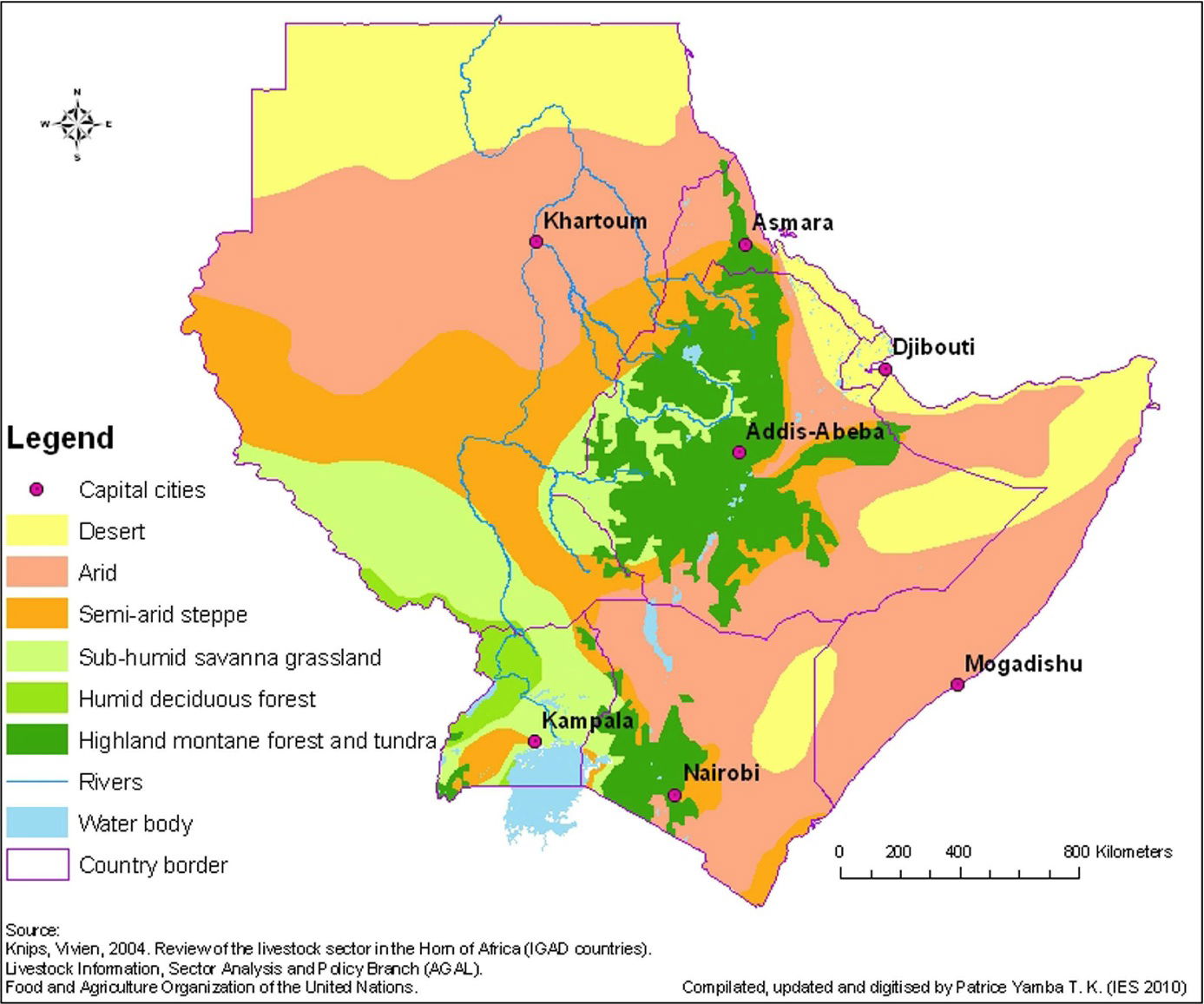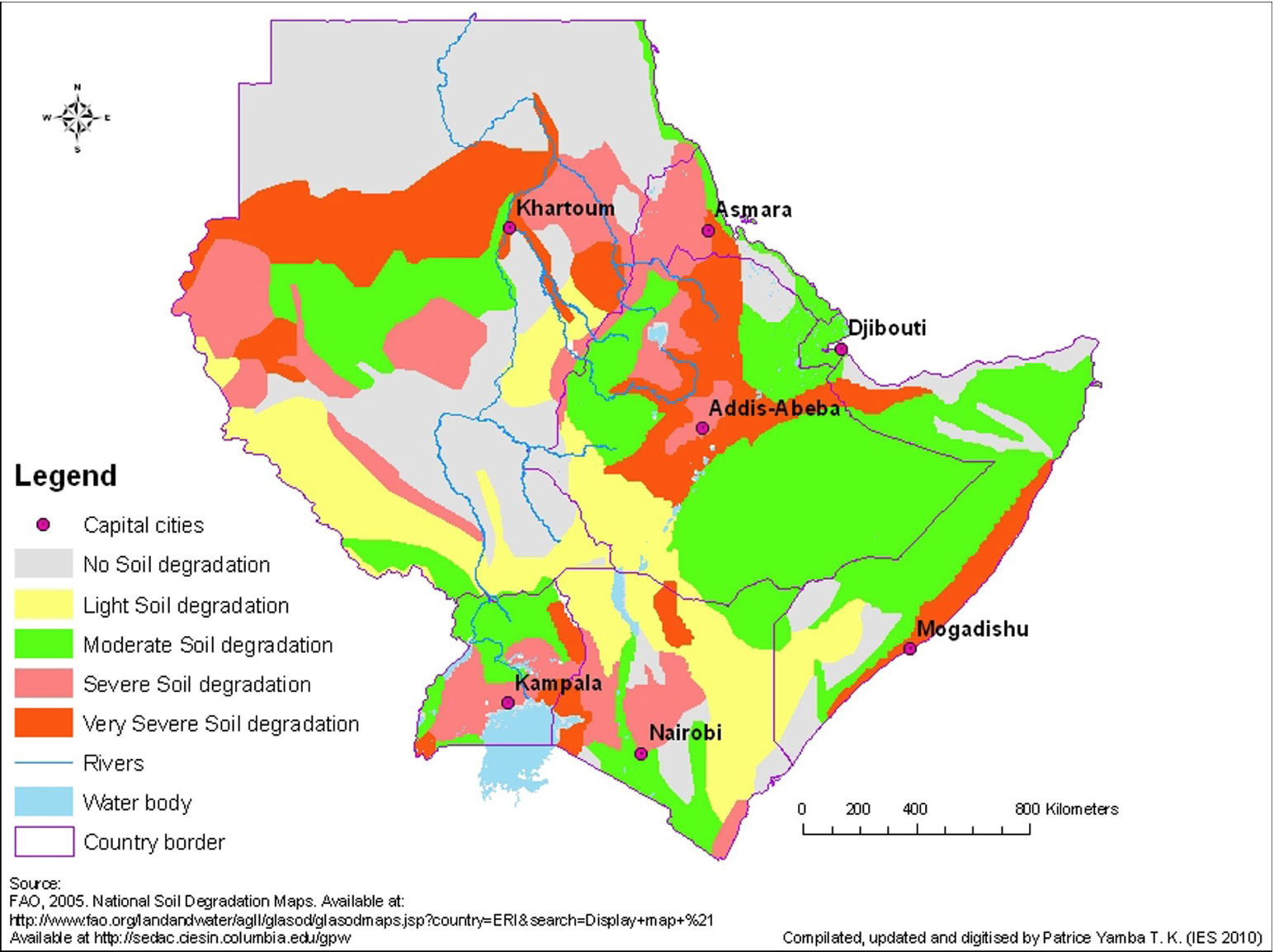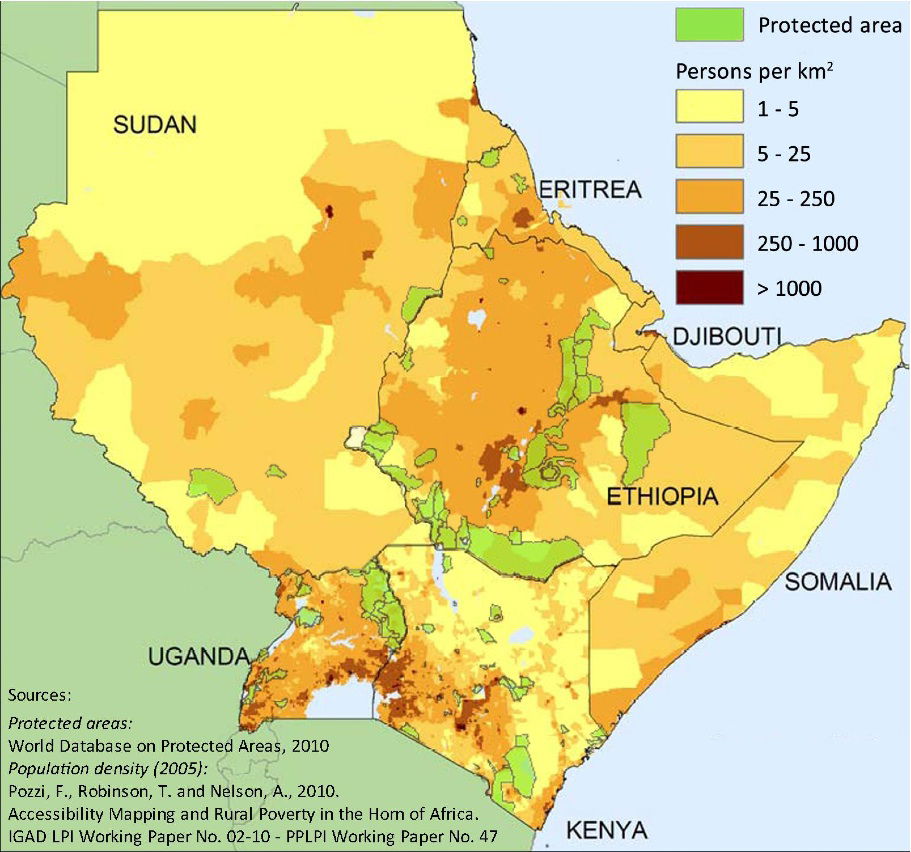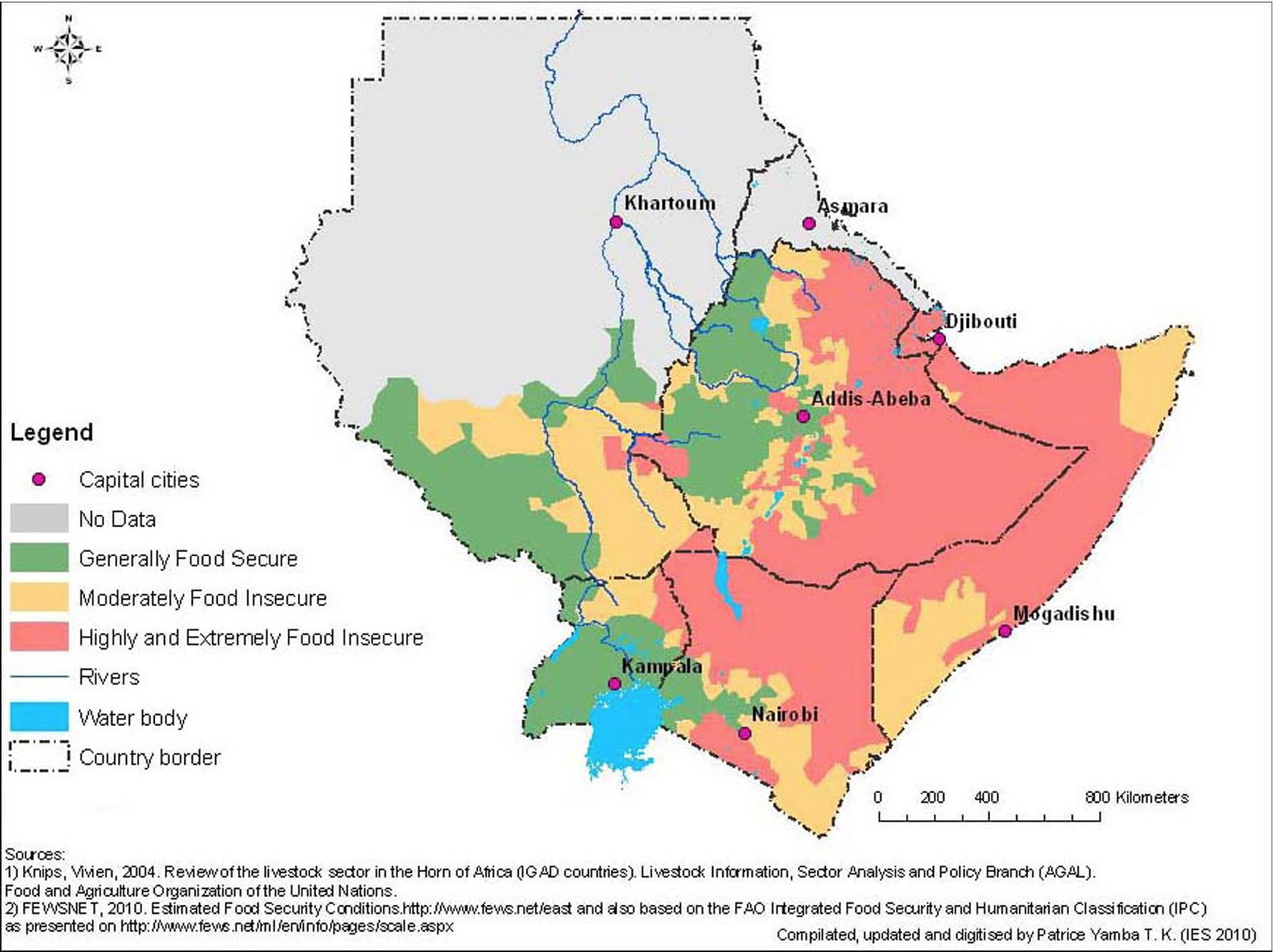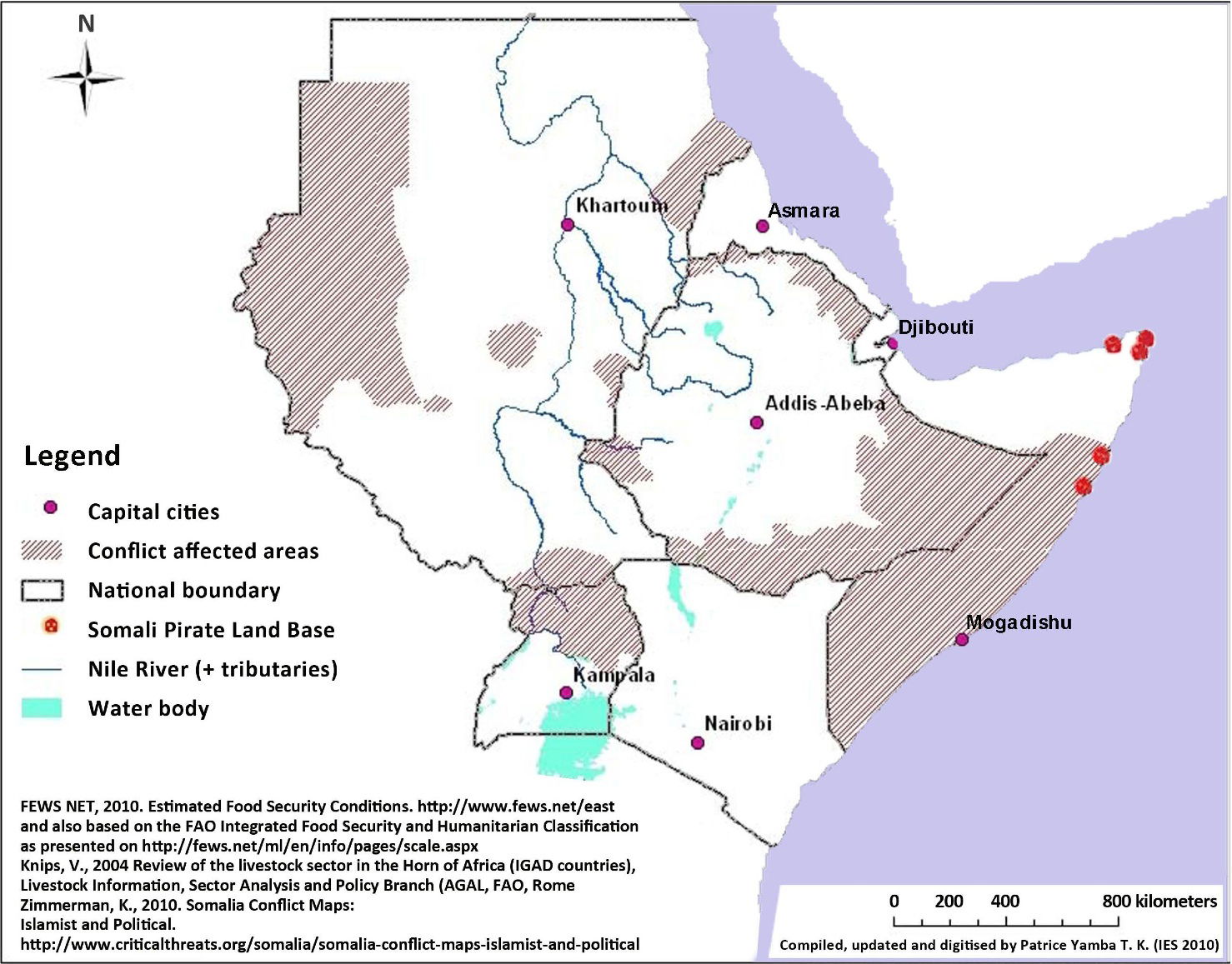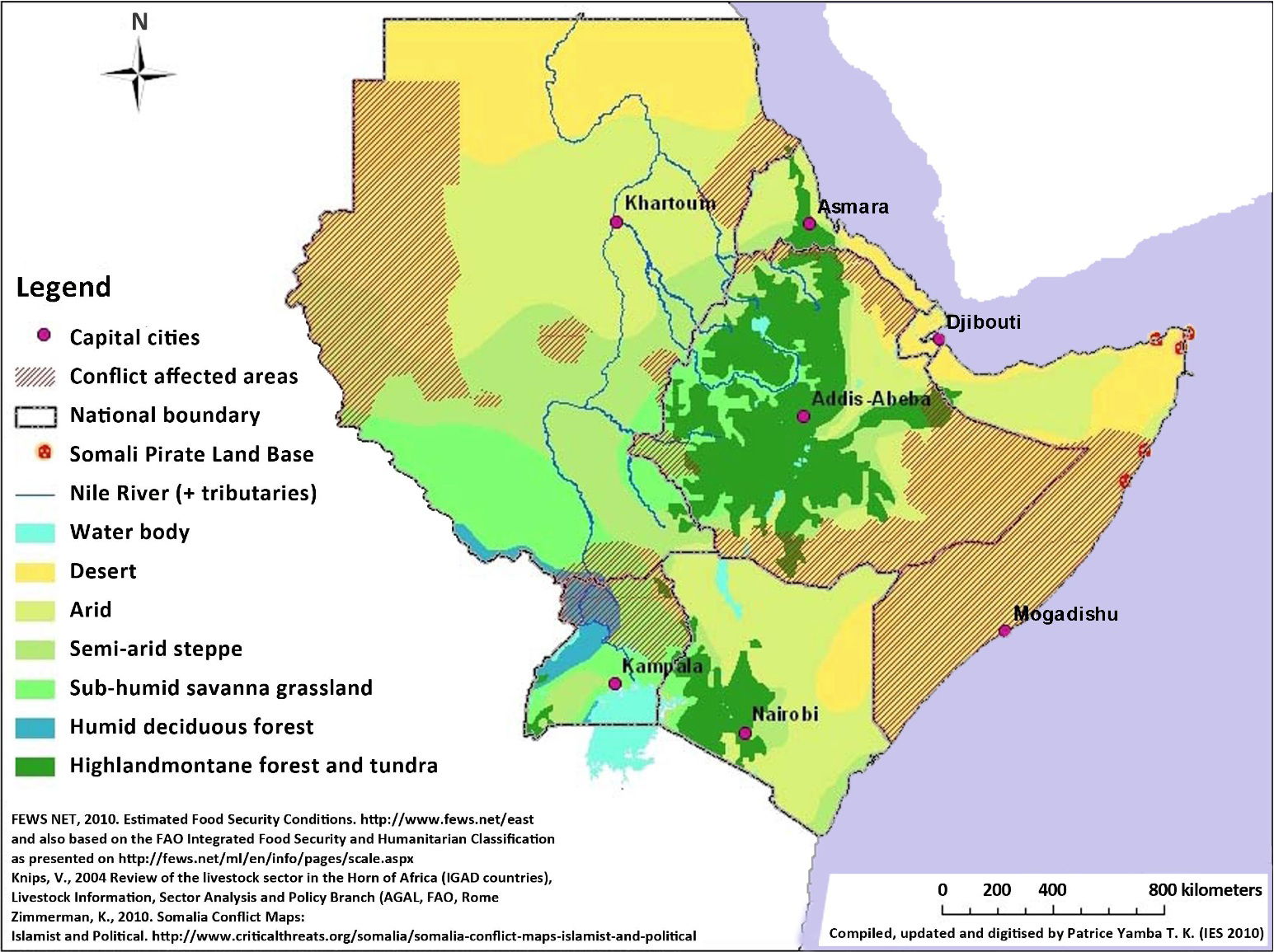ESPA - Horn of Africa
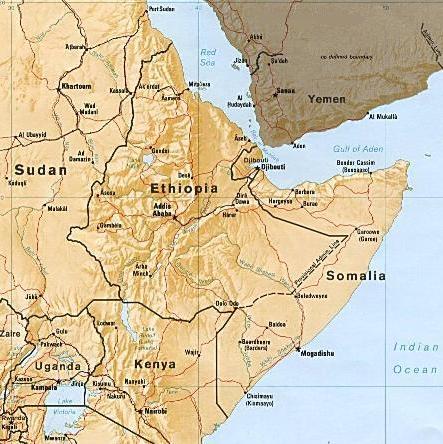
Environmental Security in the Horn of Africa
In the Horn of Africa, increasing scarcity and degradation of natural resources seriously threatens human well-being. The population in the region (Ethiopia, Eritrea, Sudan, Djibouti, Somalia, Kenya and Uganda) has increased fourfold in the past 50 years and continues to grow rapidly. The mounting need for fertile soils and irrigated land is intensified by high international demand for food and energy. With inadequate nature protection and poor resource management, many ecosystem services are seriously disturbed.
Security Threats
Pastoralists are faced with declining amounts of land and water for their cattle. Regular food insecurity affects millions of people. In a continuous struggle for water and land, resource conflicts regularly occur between - and among - farming and pastoral communities, especially in arid and semi-arid areas. At least 5 million people are permanently displaced. Vicious cycles of resource pressure, conflict and migration have very serious destabilizing effects on the region.
This is made worse by the ‘hydro-political’ tensions on the Nile River. Plans to allocate more water for irrigated agriculture in Uganda and Ethiopia, to replace rain-fed agriculture, face a great deal of resistance from downstream states Sudan and Egypt. Moreover, piracy in the Indian Ocean and the Gulf of Aden has become a main international security problem. What started as a form of ‘coastal protection’ against illegal fishing and toxic waste dumping along the Somali coast has transformed into the violent basis of a very lucrative war economy.
The Challenge
The challenge for the Horn of Africa is to combat the loss of fertile land by deforestation and erosion, to slow down natural population growth and to integrate the maintenance of ecosystem services into planning and decision-making processes. In all countries it is essential to strengthen institutional capacities for disaster response, waste management and enhancing food and water security. The international community can contribute significantly to reforestation, agro-forestry and forest protection measures in order to maintain the ecosystem services, on which economies and societies in the region depend. Re-greening the Horn will improve energy, food and water security and will help to alleviate poverty, by ensuring a sound basis for economic development and human well-being.
The Report
- Environmental Security Assessment Horn of Africa - Eric van de Giessen - January 2011 (PDF – 5.2 MB)
- Case Study Poster (PDF – 2.9 MB). Contact us to request printed copies of this poster.
Maps
Related Links
![]() Organisations
Organisations![]() Initiatives
Initiatives![]() Publications
Publications![]() Web Resources
Web Resources
